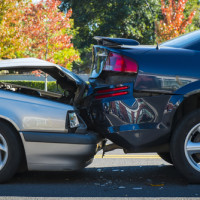Injured Plaintiff Fails to Prove Permanent Injury Following New Jersey Car Accident

Under New Jersey’s no-fault insurance law, in order to sue a negligent driver for damages such as pain and suffering after a car accident, you must be able to prove that you suffered a “permanent injury” within the meaning of the law. In the case of Zimmerman v. Kahn, decided last month, the appeals court refused to disturb the jury’s finding at trial that the plaintiff did not prove permanent injuries as a result of the accident.
The parties in this case stipulated before trial that the defendant was liable for causing the accident. Therefore, the only matter left for trial was a determination of what damages may be owed. Even though the defendant did not dispute the issue of liability, he did dispute whether the plaintiff’s injuries were permanent and whether they were caused by the accident, both of which would be necessary to hold the defendant liable for the plaintiffs’ damages. After a three-day trial, the jury returned a verdict of no cause of action, deciding that the plaintiffs failed to show permanent injuries related to the accident.
The husband and wife plaintiffs had both alleged permanent injuries caused by the accident, particularly painful head and neck injuries. The facts showed that the wife was not given medical attention at the scene, and although she was able to drive herself to the hospital, she was not treated there. While she did have an MRI a couple of weeks later, she did not follow up. An MRI was again taken three months later, but no treatment resulted at that time either. The plaintiff’s own doctor testified to the existence of degenerative conditions that could be pre-existing, and also stated that pain is subjective and cannot be objectively evaluated.
For the husband, who claimed a neck injury, it was shown that he had a history of polio and other medical problems, including radiculopathy (pain in the extremities caused by a nerve problem in the neck) and six previous concussions. The husband didn’t see a doctor until 1 ½ years after the accident. The defendant’s medical experts said the husband’s problems were a result of preexisting degenerative conditions. The jury apparently believed the defendant’s expert in finding the husband, like the wife, did not have a permanent injury caused by the car crash.
Jury Verdicts Rarely Disturbed on Appeal
The plaintiffs appealed the jury verdict, asking for a new trial and arguing that the jury’s verdict went against the weight of the evidence. As the appellate panel noted, it is very hard to dislodge a jury verdict, and it requires a high standard of proof to do so. The judges noted that there was conflicting medical testimony presented to the jury, and the jury’s role is to evaluate the evidence and decide whose testimony is more credible. The appeals court found no clear and convincing miscarriage of justice and affirmed the judgment of the lower court.
When taking a case to trial, it is essential to present the facts in the strongest light and in the most convincing manner in order to secure a favorable jury verdict. On appeal, one must be prepared to meet a high standard of proof to establish that the jury reached the wrong conclusion. If you have been hurt in a car accident in Wayne, New Jersey, contact Massood Law Group for assistance.

